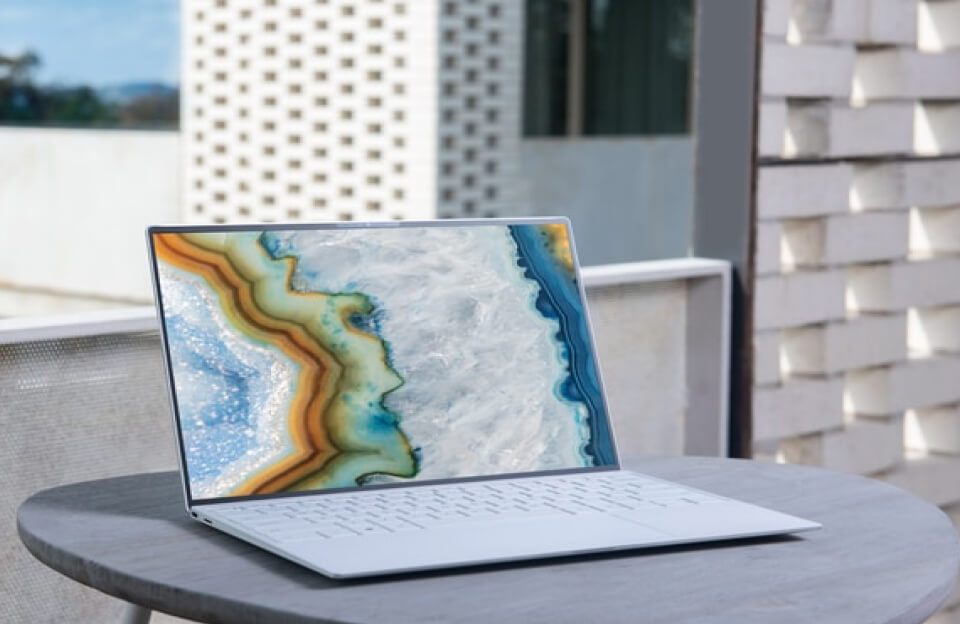Recent news has heralded a significant victory for Paytm, one of India’s foremost fintech platforms, in its ongoing regulatory battle. Investors and market analysts are keenly observing how this win will reshape the company’s trajectory in the competitive financial technology landscape. This article delves into the nuances of Paytm’s regulatory challenges, the recent resolution, and what this means for stakeholders in the fintech space. With insights grounded in the latest developments, investors will be better equipped to understand the strategic implications of Paytm’s regulatory environment.
Understanding Paytm’s Regulatory Challenges

Paytm, one of India’s leading fintech companies, has faced numerous regulatory hurdles over the years. These challenges have been pivotal in shaping the company’s strategies and operations, and they offer valuable insights into the evolving fintech regulatory landscape in India. The regulatory environment in India is complex, governed by multiple authorities such as the Reserve Bank of India (RBI), the Securities and Exchange Board of India (SEBI), and the Ministry of Electronics and Information Technology (MEITY). Each of these bodies has played a crucial role in the regulatory journey of Paytm.
One of the primary regulatory challenges Paytm has encountered is related to payment systems oversight. The RBI, as the central banking institution, has stringent guidelines for payment service providers. In the early days, Paytm struggled with compliance issues surrounding know-your-customer (KYC) norms and transaction limits. The KYC requirements, aimed at combating money laundering and terrorist financing, initially posed significant barriers to user growth. Paytm had to invest heavily in upgrading its verification processes and technology infrastructure to meet these standards.
Additionally, transaction limits posed another hurdle. Initially, the RBI set low transaction limits for digital payments to mitigate risks. This limited Paytm’s ability to handle large volumes of transactions, impacting its scalability and market reach. However, through persistent engagement and demonstration of robust security measures, Paytm managed to persuade regulators to gradually increase these limits, thereby expanding its operational capacity.
The company also faced scrutiny regarding data privacy and protection. With the growing emphasis on data sovereignty and user rights, MEITY and the RBI have introduced several regulations, such as the Personal Data Protection Bill and the RBI’s data localization mandate. Paytm had to ensure that all user data was stored on servers within India and implement stronger data protection protocols. This required significant financial and technological investments but ultimately strengthened user trust and compliance with international data standards.
Another key area of regulatory challenge has been in the realm of consumer protection. SEBI, which oversees securities markets, has been particularly active in ensuring that fintech firms like Paytm do not exploit consumers. Paytm has faced inquiries and fines over issues such as misleading advertisements and inadequate disclosure of terms and conditions. To address these concerns, the company enhanced its transparency practices and worked closely with SEBI to ensure that its marketing and communication strategies were in line with regulatory expectations.
The introduction of new financial products and services often brings additional regulatory scrutiny. For instance, when Paytm ventured into lending and insurance services, it had to navigate through the regulatory frameworks set by the RBI and other relevant authorities. Obtaining the necessary licenses and ensuring ongoing compliance with loan disbursement norms and insurance regulations required extensive legal and operational efforts. Despite these challenges, Paytm’s proactive approach to regulatory engagement has helped it build a strong foundation for these offerings.
The Indian fintech sector has seen a surge in regulatory activity, driven by the need to balance innovation with risk management. The RBI has been at the forefront of this, introducing sandbox models and regulatory guidelines to foster a supportive yet cautious environment. Paytm has been an active participant in these initiatives, contributing to policy discussions and testing new products under controlled conditions. This engagement has not only helped Paytm stay ahead of regulatory changes but has also positioned it as a thought leader in the industry.
Evolving regulations also include the enforcement of stricter capital adequacy norms and anti-money laundering (AML) policies. Paytm has had to continuously adapt its business model to meet these requirements, ensuring that it remains financially stable and compliant with AML laws. The company has established dedicated teams focused on regulatory affairs, working tirelessly to monitor and implement changes in real-time.
In the context of global trends, the regulatory landscape in India is increasingly influenced by international standards and best practices. For example, the General Data Protection Regulation (GDPR) in Europe has set a benchmark for data privacy, which many Indian regulators, including MEITY, are striving to emulate. Paytm’s global ambitions have necessitated a deeper understanding of these international regulations, influencing its domestic compliance practices.
The company’s journey through these regulatory challenges highlights the importance of agility and proactivity in the fintech sector. Paytm’s ability to pivot and innovate while maintaining strict compliance has been a testament to its resilience. This experience is crucial for other fintech players in India, who can learn from Paytm’s strategies and adapt similar approaches to navigate their own regulatory obstacles.
Moreover, the evolving regulatory landscape has had broader implications for the fintech sector. As regulators continue to refine and introduce new norms, the environment becomes more predictable and less risky for investors. This has led to increased investment in Indian fintech startups, as seen in the rise of funding rounds and valuations. For more insights on the funding trends in the fintech sector, you can explore this article.
In summary, Paytm’s regulatory challenges have been multifaceted, spanning across payment systems, data privacy, consumer protection, and financial stability. While these challenges have required considerable effort and resources to overcome, they have also contributed to the company’s robust growth and market leadership. By understanding and adapting to these regulations, Paytm has set a precedent for responsible fintech operations in India.
The Turning Point: Paytm’s Regulatory Victory

In the intricate landscape of fintech regulation, Paytm’s recent victory stands out as a significant milestone. This chapter delves into the details of this regulatory triumph, the reactions it has spurred in the fintech community, and its strategic implications for Paytm. Furthermore, it explores the broader impact on investor sentiment and the regulatory landscape in India.
Outcome of the Regulatory Battle
Paytm’s regulatory journey has been marked by a series of challenges and triumphs. The recent victory, however, marks a turning point. After a prolonged period of scrutiny and compliance, Paytm secured a favorable decision from the regulatory authorities. This decision not only resolved the immediate issues but also set a precedent for future regulatory engagements in the fintech sector.
The specifics of the victory include the resolution of major compliance issues, the affirmation of Paytm’s robust security measures, and the recognition of its commitment to financial inclusion. These outcomes are significant, as they validate Paytm’s operational models and technological capabilities in a highly regulated environment.
Reaction from the Fintech Community
The fintech community’s response to Paytm’s victory has been overwhelmingly positive. Industry leaders and analysts have lauded the decision, highlighting its potential to foster innovation and trust in the sector. This victory is seen as a vote of confidence in Paytm’s approach to regulatory compliance, which can serve as a benchmark for other players in the market.
Moreover, the victory has sparked discussions on the broader regulatory framework for fintech in India. Many stakeholders are now calling for a more balanced and supportive regulatory approach that encourages innovation while ensuring consumer protection and financial stability. The success of Paytm in this regard is a testament to the possibility of achieving this balance.
Impact on Paytm’s Operational Strategy
Paytm’s regulatory victory has significant strategic implications for the company. With the regulatory hurdles cleared, Paytm can now focus on expanding its services and reaching new customer segments. The company is poised to leverage its enhanced credibility to strengthen its partnerships with financial institutions, merchants, and other stakeholders.
One of the key areas of focus is the expansion of its digital payment services. Paytm has already begun to roll out new features and services that enhance user experience and security. This includes advanced payment solutions, enhanced fraud detection mechanisms, and more comprehensive financial management tools.
Additionally, Paytm is expected to increase its investments in research and development to stay ahead of technological advancements. The company is also likely to explore new markets and partnerships, both domestically and internationally, to further its growth and influence in the fintech sector.
Implications for Investor Sentiment
Investor sentiment has been significantly bolstered by Paytm’s regulatory victory. The resolution of compliance issues and the affirmation of Paytm’s operational excellence have reassured investors about the company’s long-term prospects. This positive sentiment is reflected in the company’s stock performance and the increased interest from potential investors.
Investors are now more confident in Paytm’s ability to navigate the complex regulatory landscape and capitalize on the growing fintech market. This confidence is likely to translate into increased investment and a stronger financial position for the company. As a result, Paytm can allocate more resources to innovation and expansion, further solidifying its position in the market.
Broader Fintech Regulation in India
Paytm’s regulatory success has broader implications for the fintech regulatory landscape in India. It demonstrates the potential for a collaborative and supportive regulatory approach that fosters innovation and growth. Regulators are now under increased pressure to adopt a more proactive and灵活的(此处应为“flexible”) regulatory framework that balances the need for oversight with the encouragement of technological advancements.
The fintech community and industry experts are advocating for the adoption of regulatory sandboxes, which allow companies to test new technologies and services in a controlled environment. This approach can help identify potential risks and regulatory gaps while fostering innovation. Paytm’s victory serves as a catalyst for such regulatory reforms, highlighting the benefits of a balanced and forward-looking approach.
In conclusion, Paytm’s regulatory victory is a significant milestone that not only resolves immediate challenges but also sets the stage for future growth and innovation. The positive reaction from the fintech community, the strategic implications for Paytm, and the broader impact on investor sentiment and regulatory frameworks in India underscore the importance of this victory. As the fintech sector continues to evolve, Paytm’s success serves as a model for navigating and thriving in a rapidly changing regulatory landscape.
Impact on the Fintech Ecosystem and Investment Strategies

Paytm’s recent regulatory success has sent ripples through the Indian fintech ecosystem, prompting stakeholders to reassess their investment strategies. This chapter delves into these effects and explores the long-term implications for market analysts, competitive reactions, and future projections for Paytm and its peers.
The regulatory landscape in India has long been a critical factor influencing the growth and sustainability of fintech companies. Paytm’s victory has not only solidified its position in the market but has also set a precedent for regulatory compliance and innovation. As discussed in the previous chapter, the Turning Point: Paytm’s Regulatory Victory highlights the company’s ability to navigate complex legal frameworks, fostering a sense of confidence among investors.
This newfound confidence is particularly evident in the investment community. Investors are now more inclined to funnel capital into fintech startups, expecting similar regulatory breakthroughs. According to a recent report, the total investment in Indian fintech startups surged by 25% following Paytm’s regulatory win. This uptick in investments can be attributed to several factors:
-
Reduced Risk Perception: Paytm’s success in overcoming regulatory hurdles has demonstrated that with the right approach, fintech companies can navigate the regulatory environment effectively. This reduces the perceived risk associated with investing in the sector, making it more attractive to venture capitalists and other investors.
-
Enhanced Credibility: Paytm’s victory has enhanced the credibility of the Indian fintech industry. It shows that the regulators are open to dialogue and willing to support innovative technologies that align with consumer protection and financial inclusion goals.
-
Positive Market Sentiment: Positive news about regulatory approvals tends to boost market sentiment. This is crucial in an industry that relies heavily on trust and confidence, both from users and from the broader financial community.
As a result, market analysts are revising their outlooks for the fintech sector. The focus is shifting from short-term challenges to long-term opportunities. For instance, some analysts predict a significant increase in the adoption of digital payment solutions over the next five years, driven by the regulatory clarity and the growing acceptance of fintech platforms.
However, this success is not without its challenges. The competitive dynamics within the fintech ecosystem are likely to shift. Rivals will need to adapt quickly to maintain their market share. They may invest more in compliance, seek partnerships with established players, or innovate further to stay ahead of the curve. This could lead to a more robust and diversified fintech market, benefitting consumers with a wider array of services and solutions.
One of the key areas of focus for competitors will be the development of new business models that comply with evolving regulations. For example, while some may choose to integrate more deeply with existing banking systems, others might explore decentralized finance (DeFi) solutions that operate outside traditional regulatory frameworks. The flexibility to pivot and innovate will be crucial in this rapidly changing landscape.
Moreover, Paytm’s success has attracted attention from international investors and tech giants. Companies like Google and NVIDIA, which have been active in the tech and AI sectors, are showing increased interest in the Indian fintech market. For instance, Google’s investment in Stan India [https://guiadanoticia.com/google-invests-in-stan-india/] indicates a broader trend of global tech players looking to capitalize on the regulatory advancements and market potential in India.
Investment strategies are also evolving in response to Paytm’s triumph. Venture capitalists are more likely to invest in fintech startups that demonstrate strong regulatory compliance and a clear path to profitability. Factors to Consider When Investing in Venture Capital [https://guiadanoticia.com/fatores-investir-venture-capital/] highlight the importance of regulatory alignment, technological innovation, and market readiness in the decision-making process of investors.
In terms of Series C funding rounds, Paytm’s regulatory win is expected to accelerate fundraising efforts among fintechs. Startups that can showcase their regulatory prowess are more likely to attract significant investments. Strategies for Series C Funding [https://guiadanoticia.com/estrategias-investimento-serie-c/] suggest that demonstrating regulatory compliance and a scalable business model are key to securing large investments at this stage.
Long-term, the impact of Paytm’s regulatory success extends beyond just the company itself. It is likely to foster a more supportive regulatory environment, encouraging other fintechs to innovate and expand. Market analysts predict that the Indian fintech sector could see a surge in mergers and acquisitions as smaller players seek to align themselves with larger, more established entities that have a track record of regulatory compliance.
For Paytm, the regulatory victory opens up new avenues for growth and expansion. The company can now focus on scaling its operations, developing new services, and exploring international markets. However, maintaining its regulatory edge will be crucial as it faces increasing competition and scrutiny from regulatory bodies worldwide.
Competitive reactions are already palpable. Rival fintechs are ramping up their efforts to engage with regulators, aiming to create a level playing field. Some are even considering forming alliances or industry groups to push for favorable regulatory changes. These moves indicate a strategic shift towards more collaborative and policy-focused approaches.
Future projections for Paytm and its peers are optimistic. Analysts expect the company to continue leading the charge in regulatory compliance and innovation. However, the road ahead is not without obstacles. The rapid pace of technological change and the evolving regulatory landscape mean that fintechs will need to remain agile and responsive to new challenges.
In conclusion, Paytm’s regulatory success has far-reaching implications for the Indian fintech ecosystem. It has reshaped investment strategies, sparked competitive reactions, and set the stage for a more dynamic and innovative sector. As other fintechs follow suit, the collective impact on the market and on financial inclusion in India could be transformative.
Discover how to elevate your investment strategy today!
Mude de vida agora https://amzn.to/3GSG2WA
Sobre
Next-level performance and sleek design in your hands! Get the all-new iPhone 16 (128 GB) – Black with free shipping and an exclusive launch discount for a limited time!

Gabriel de Jesus is a journalist specialized in digital media and the founder of the blog Guia da Notícia. Passionate about clear and accessible information, he launched the platform in 2016 to deliver reliable news on politics, economics, society, and culture. With a direct style and simple language, Gabriel has turned the blog into a regional reference for independent journalism.



